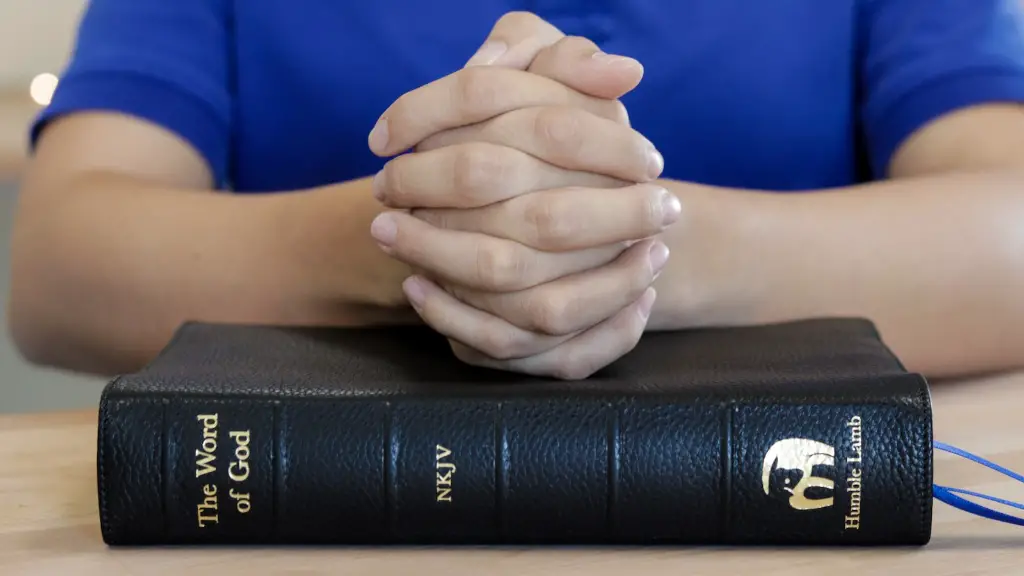Ezra the priest is a major Biblical figure in both the Hebrew Bible and the Christian Old Testament. Records of his life begin in the books of Ezra and Nehemiah, and it is revealed that he was one of the leading religious figures of his generations in Israel. This raises the question as to whether Ezra was a Prophet in the Bible, and in this article we will explore that question.
The term ‘prophet’ can be quite opaque; we have lots of historical accounts of people said to be prophets, but much of the discussion is usually guided by the expectations and narrative of whatever culture the prophet comes from. At its core, a prophet is someone who claims to be God’s messenger, someone appointed by God to convey a message to people. Prophets did not just make predictions about the future; their role was also to rebuke wrongdoing and serve as a moral conscience amongst the people.
The Bible is clear that some of the most prominent figures in Israel were prophets, such as Isaiah, Jeremiah, and Daniel. These three were recognised by Jews and Christians as being true prophets of the Lord, a title they held due to their association with the prophetic ministries. But what of Ezra?
Ezra’s life story is outlined in the books of Ezra and Nehemiah, both of which record how he led the people of Israel back from exile in Babylon. He played a key role in rebuilding the nation and helping to restore the laws and practices of God’s covenant people. He is also credited with the compilation of the Torah in its present form. So can all of these accomplishments really be attributed to a mere priest, or was Ezra in fact a Prophet?
The most authoritative answer to this question comes from the biblical texts themselves. In the book of Ezra, Ezra is referred to as ‘the prophet’ and is prominently associated with prophetic activities and functions. Similarly, the book of Nehemiah describes him as a man of God and goes on to recount how the people of the day viewed him as a prophet.
Most Bible scholars agree that while Ezra was a priest and a teacher of God’s Word, he was also a prophet. He is described as having a spiritual and personal understanding of God, and his words and actions reflect this. For example, his teaching of the Law and his dedication to restoring Israel’s faith demonstrate a deep prophetic insight. Moreover, his deeds and words are closely associated with the ministry of the prophet and are recorded in the biblical texts.
The Context of Ezra’s Time
To fully understand the prophetic nature of Ezra’s ministry, it is necessary to consider the wider context of his time. In the fifth century BCE, the people of Israel were living in the midst of tumult and confusion. The nation had been conquered and driven into exile in Babylon, and the spiritual and political life of the people had been decimated. This presented a unique religious challenge–how could a nation divided by distance and culture hope to rebuild itself and return to being a covenant people of God?
It was in this context that Ezra rose to a position of authority. He was able to rekindle the spirit of his people, encouraging them to not only believe in their God, but to serve and obey him too. He was a source of inspiration that inspired the people and gave them hope for the future. By pointing them back to the covenant, he provided focus and security, reassuring them that God had not abandoned them.
His prophetic ministry was crucial in this time of uncertainty and turmoil. He restored its laws and regulations, provided a moral compass for the nation, and was a strong leader in his own right. His actions reflected a firm commitment to the covenant and he was clearly committed to his duty as a prophet.
Ezra’s Influence Over The Jews
The influence of Ezra’s prophetic ministry over the Jews is evident in a range of historical sources. The Talmud, which compiles Jewish law and tradition, includes a number of quotes referring to him as a prophet. Similarly, Philo, a Jewish philosopher, described Ezra as a prophet and his words as divinely inspired. Christian texts also recognise him as a prophet, connecting him to the prophetic ministry of Old Testament figures such as Jeremiah and Isaiah.
Ezra’s prophetic ministry continues to be felt today. The events of his lifetime are still remembered and celebrated in the synagogue, and his teachings of God’s word are still consulted. His words are still powerful and relevant, offering guidance and wisdom. It is this prophetic guidance that helps the Jewish people to move forward with courage and committed to their shared values, despite the uncertainty and confusion of the current age.
Conclusion On Whether Ezra Was A Prophet
The evidence is clear – Ezra was indeed a Prophet in the Bible. He was a powerful religious figure and a spiritual leader who inspired his people in a time of great difficulty. His dedication to the covenant and his commitment to rebuilding the nation were remarkable. And his influence has endured over the centuries, inspiring generations of Jews and Christians.
Ezra’s Impact On Theologies Today
Ezra’s prophetic teachings continue to impact theologies today both inside and outside the synagogue. In many Christian denominations, his words are part of scripture, while in the Jewish faith, they are studied as part of the scriptural canon. He is seen as a model of faith, love, and humility. As an example, Ezra is credited with writing a prayer of repentance in chapter 9 of the book of Nehemiah that has become a part of the morning services in synagogues around the world.
Ezra’s prophetic ministry and the impact of his life story have also inspired many authors, philosophers, and theologians over the centuries. From St. Augustine to Martin Buber, Ezra’s testimony has been reflected in their work and has continued to call out to believers. The experience of exile and redemption, the renewal of faith and hope, and the joy of being restored by God– these themes form the basis of Ezra’s prophetic ministry and remain relevant in the current age.
The Symbolic Significance Of Ezra’s Ministry
While there is no doubt that Ezra was a prophet, his ministry had a deeper symbolic significance. In the book of Ezra, Nicanor is a priest who goes with Ezra to restore the temple. While Nicanor’s mission is successful, he is quickly forgotten and fades into obscurity. But his words live on through Ezra, whose mission continues to inspire generations of believers. In this way, Ezra stands as a symbol of the power of faithful obedience and the reward of perseverance.
In addition, Ezra’s ministry was evidence of the covenantal relationship between God and man. By calling out to each other in love, Ezra and his followers were reconnecting with their spiritual heritage and confirming their faith in God’s promises. In so doing, they were acting out the central themes of the covenant – faithfulness, hope, and repentance. This is the true power of Ezra’s prophetic ministry – it is an embodiment of the eternal covenant between God and his people.
Conclusion Of The Symbolic Significance Of Ezra’s Ministry
Ezra stands as a symbol of faith, love, and hope, reminding us of the essential covenantal relationship between God and man. His prophetic ministry calls us to consider our relationship with God and to remember the importance of faithful obedience in our lives. His words and deeds have inspired generations of believers, calling us to follow the path of faith and obedience and to remain committed to the covenant.




